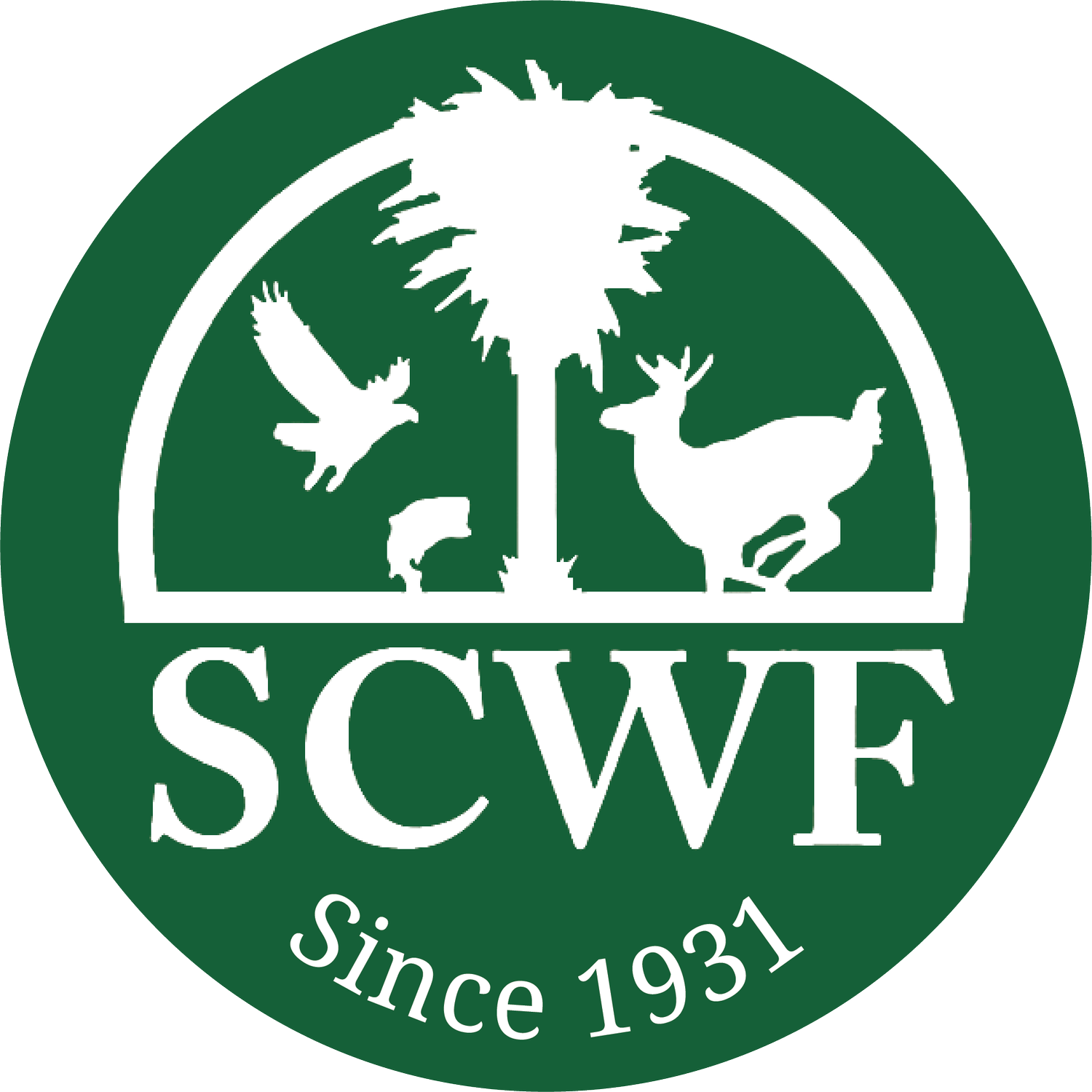South Carolina Wildlife Federation Celebrates City of Columbia Community Wildlife Habitat Announcement with Mayor Stephen Benjamin and National Wildlife Federation President and CEO Collin O’Mara
In a ceremony at the Robert Mills House and Gardens, the South Carolina Wildlife Federation (SCWF) celebrated the City of Columbia’s new status as a certified Community Wildlife Habitat. SCWF Executive Director Sara Green was joined by National Wildlife Federation president and CEO, Collin O’Mara, for the ceremony’s opening remarks. In addition, Mayor Stephen Benjamin addressed the crowd and released an official proclamation naming October 11, 2019 as “Columbia’s Community Wildlife Habitat Day.” Keith Mearns, Director of Grounds for Historic Columbia, also spoke and gave a tour of the native plants used on site at the Robert Mills House and Gardens.
The City of Columbia joins more than 200 communities in the United States to be certified as a Community Wildlife Habitat and is now the largest community in South Carolina to receive the certification. The National Wildlife Federation’s Community Wildlife Habitat program was created to encourage communities to become more wildlife-friendly through the use of native plants and sustainable land management. To reach eligibility as a Community Wildlife Habitat, the SCWF team helped certify more than 700 local properties as wildlife habitats, led initiatives to remove invasive species in the area, and engaged local schools, garden clubs and churches in educational events on the importance of habitat restoration. South Carolina has the second highest number of Certified Wildlife Habitats per capita compared to every state in the United States.
“We are extremely excited to help the City of Columbia become a Community Wildlife Habitat,” said SCWF Executive Director Sara Green. “Climate change, human population growth, and land development are the biggest threats to our native wildlife. We are grateful to every individual and partner who helped offset these threats by enhancing wildlife habitat throughout the community to make this milestone in Columbia possible.”
“At a time when wildlife needs our help more than ever, planting native habitat and providing clean water can help ensure species—like pollinators, songbirds, and frogs—thrive,” Collin O’Mara, president and CEO of the National Wildlife Federation. “We are thrilled to join the South Carolina Wildlife Federation to honor the City of Columbia and Mayor Benjamin for their outstanding national leadership in wildlife conservation through our Certified Community Wildlife Habitat program. By engaging more than 700 residents and community sites, while encouraging each of us to do our part, Columbia is a shining example for all Americans of how we can save imperiled species, together.”
“We are anxious to see how many different species of wildlife are increasingly attracted to and use the gardens at the Robert Mills House as we continue our transition to one hundred percent Eastern North America native plants,” said Historic Columbia Director of Grounds, Keith Mearns. “We also look forward to expanded cooperation with SCWF on the site, in the form of nature walks and other programming.”
In addition to Historic Columbia, other SCWF community partners in Columbia with Certified Wildlife Habitats open to the public include: Harbison State Forest, Riverbanks Zoo, Mast General Store, Stormwater Studios, Palmetto Experience, Rosewood Market, Forest Lake Presbyterian Church, and the University of South Carolina. Individuals or communities who are interested in learning more about certifying a space as wildlife habitat should visit: https://www.scwf.org/wildlife-habitats.
About the South Carolina Wildlife Federation:
One of the 52 state & territory affiliates of the National Wildlife Federation, the South Carolina Wildlife Federation (SCWF) is the oldest conservation organization in the state and prides itself on science-based wildlife conservation policy and high-quality education programs. SCWF’s mission is to conserve and restore South Carolina’s wildlife and wildlife habitat through education and advocacy. For more information, visit: www.scwf.org.
































